LEGAL LINK INTERNATIONAL-EUROPE

On 20 March, the CPT published a Statement of Principles relating to the treatment of persons deprived of their liberty in various places of detention (including psychiatric hospitals, social care homes and newly-established quarantine facilities/zones) in the context of the COVID-19 pandemic. The text reminds State authorities of the absolute nature of the prohibition of torture and inhuman or degrading treatment and stresses that protective measures must never result in inhuman or degrading treatment of persons deprived of their liberty.
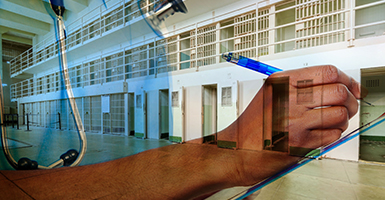
COVID-19 poses a specific risk to persons deprived of their liberty and to those who are in daily contact with them. Several Council of Europe texts are relevant to mitigate these risks, including the European Prison Rules and Committee of Ministers’ Recommendations n° R(93)6 concerning prison and criminological aspects of the control of transmissible diseases including AIDS and related health problems in prison, and n° R (98) 7 concerning the ethical and organisational aspects of health care in prison. Two handbooks aiming to improve prison healthcare and medical ethics, and the organisation and management of healthcare in prisons, may serve as guidance for member states in the current context.

The COVID-19 crisis is a brutal reminder of the importance of ensuring lasting progress with respect to social rights enjoyment, particularly through the development of universal public health services. The pandemic shows in practical terms the indivisibility of human rights. It is crucial that the European Social Charter, also known as the Social Constitution of Europe, is used to shape human rights-compliant responses to the COVID-19 pandemic and to take stock once the crisis is over. The Charter, together with its monitoring mechanisms—reporting and collective complaints—are excellent tools for the reconstruction efforts that will follow.

At a time of extreme constraints on health care systems, major ethical challenges are raised and difficult decisions taken in a context of uncertainties and scarce resources. It is essential that respect of human dignity and human rights are upheld.
The Oviedo Convention provides a unique international legal framework in such context. Equity of access to health care (Article 3), guided by medical criteria, is paramount to prevent increased vulnerabilities and avoid discrimination. Together with consent, protection of privacy and the other principles of the Convention, it reaffirms the fundamental link between human rights, solidarity and responsibility, essential in addressing the current crisis.

Public authorities in charge of managing the crisis resulting from COVID-19 pandemic have a crucial role to play in responding to requests for access to information and providing, of their own motion, regular and evidence-based information covering various aspects of the crisis.
The Council of Europe Convention on Access to Official Documents provides useful guidance to that effect.
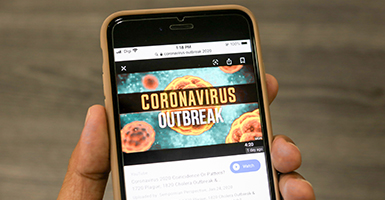
As governments around the world are declaring a state of emergency in response to the COVID-19 outbreak, it is of crucial importance to ensure that any exceptional measures introduced do not undermine freedom of expression (Article 10) and other human rights enshrined in the Convention and are “strictly required by the exigencies of the situation” (Article 15)
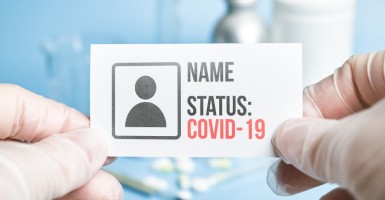
The current fight against the COVID-19 pandemic may require measures that restrict our human rights and fundamental freedoms, including the right to data protection. In this respect, it is important to recall that data protection can in no manner be an obstacle to saving lives and that the applicable principles always allow for a balancing of the interests at stake.

Digital technologies, including Artificial Intelligence (AI), have been used to support the fight against the Covid-19 pandemic affecting the entire world since the beginning of 2020. AI has been particularly implicated in the search for a treatment and a vaccine, as well as in the accelerated development of testing methods.

The COVID-19 crisis is producing unprecedented challenges for the audiovisual sector.
In response to this, governments and industry bodies are bringing in measures to support the various industries and their professionals through this period. And we're now tracking them for you. You’ll find a freely downloadable EXCEL table, updated on a daily basis. We emphasise that this is an on-going research project and should be understood as work in progress.
In response to this, governments and industry bodies are bringing in measures to support the various industries and their professionals through this period. And we're now tracking them for you. You’ll find a freely downloadable EXCEL table, updated on a daily basis. We emphasise that this is an on-going research project and should be understood as work in progress.
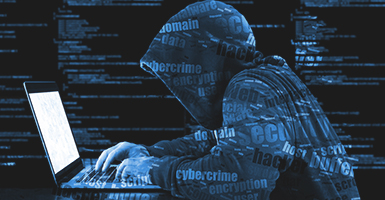
The COVID-19 pandemic renders individuals and society extremely vulnerable in all respects, whilst we all rely more than ever on computer systems, mobile devices and the Internet. Malicious actors are exploiting these vulnerabilities to their own advantage.
Criminal justice authorities need to engage in full cooperation to detect, investigate, attribute and prosecute the related offences and bring to justice those that exploit the COVID-19 pandemic for the criminal purposes.
Criminal justice authorities need to engage in full cooperation to detect, investigate, attribute and prosecute the related offences and bring to justice those that exploit the COVID-19 pandemic for the criminal purposes.
With the Budapest Convention a framework for effective cooperation with the necessary rule of law safeguards is available to 65 States. As a result of capacity building programmes, many States should now be able to act.

Counterfeit medical products deny patients proper medical treatment and are harmful to their health. The COVID-19 pandemic has dramatically exacerbated this phenomenon.
The Council of Europe MEDICRIME Convention is a key text to counter counterfeit medical products.
Its Committee of the Parties adopted an Advice on 8 April 2020.
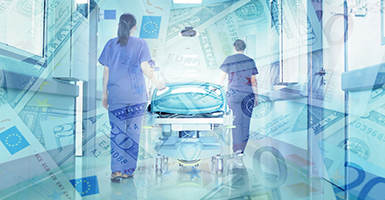
Bribery in the health care sector makes medical services more expensive and of a lower quality, and undermines patients' trust in the health services. In addition it distorts competition and has serious financial consequences for public health care insurers, and thus for the state budget. The Council of Europe Criminal and Civil Law Conventions on corruption are particularly relevant in this context and should be ratified and effectively implemented. In addition, the Council of Europe National AML/CFT Risk Assessment Methodology offers a unique tool to mitigate the money laundering risks linked to corruption in the health sector. See GRECO and MONEYVAL
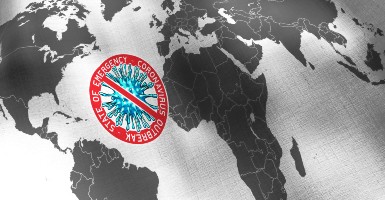
During the current Covid-19 pandemic, national governments are taking exceptional measures to slow down the spread of the virus. On numerous occasions, the Venice Commission has examined the limits of emergency powers. The Commission has consistently underlined that State security and public safety can only be effectively guaranteed in a democracy which fully respects the rule of law. Even in genuine cases of emergency situations, the rule of law must prevail.

Many countries have had to adopt emergency measures regarding the functioning of their judicial systems and to allow their courts to remain operational, as far as possible. The CEPEJ has set up a blog to share and compare experiences and practices in the field of emergency organisation of court operations, and to help member States when they design emergency measures and respond to the current challenges.

The context of COVID-19 is particularly conducive to an increased volume of virtual transactions between traders and individuals as well as between businesses. From such transactions will inevitably arise disputes and proceedings, notably in relation to electronic evidence, that courts will have to manage. The Guidelines on the use of electronic evidence in such proceedings offer national courts invaluable guidance in this respect. See the related webpage and video and also the cdcj/covid-19 webpage.
Courtsy Article.
No comments:
Post a Comment